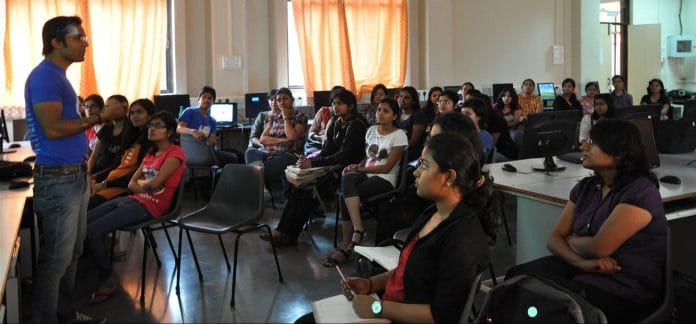New Delhi: Indian students may soon be able to pursue BSc, BCom and even BTech and MBBS in their mother tongue.
Higher education in the mother tongue is likely to be a part of the New Education Policy (NEP), which seeks to overhaul India’s education system and is expected to be finalised in the coming months.
The development was confirmed by two senior officials of the Union Human Resource Development [HRD] Ministry.
While schools offer students the option of lessons in their mother tongue, courses at the higher-education level are currently restricted to Hindi and English. The move to take higher education regional is meant to encourage students to continue their studies.
“Including mother tongue as a medium of studies in higher education will be done through NEP,” said one of the two senior officials. “The policy is in the final stage and the changes will come once the policy is implemented.”
The official said the move is aimed at “improving the gross enrolment ratio (GER) in higher education and making sure that students do not drop out of studies midway”.
The GER is the percentage of people enrolled at a certain level of education over the eligible population. For higher education, those aged 18-23 years form the base pool.
According to the All India Survey of Higher Education (AISHE), conducted by the HRD Ministry, the GER currently stands at 26.3 per cent.
As of 2015-16, HRD Ministry estimates, the GER in schools was 80 per cent in classes 9-10 and 56.2 per cent in classes 11-12.
“We found out that many students drop out of colleges because they are not comfortable with the medium of instruction,” the official said. “If they have the convenience of learning in their own language, they will continue.”
Also read: Liberal arts universities on par with IITs, IIMs are next on Modi govt’s education plan
According to the second HRD official, the government plans to take the GER to 40 per cent by 2023 and one of the ways to do so is by removing the language barrier.
“The government is serious about education in mother tongue because this will also make way for regional writers to write books in their languages,” said the second official of the ministry.
Once the policy is implemented, the official added, translation of the curriculum books to regional languages will start.
ThePrint sent an email to the HRD Ministry for an official response, but it remained unanswered until the time of publishing.
‘A good idea’
The importance of education in one’s mother tongue has been highlighted in a lot of research.
The Right to Education (RTE) Act also talks about the importance of education in the mother tongue in formative years.
Field experts’ reaction to the proposal has been largely positive.
“Some states are currently teaching [higher-education students] in regional languages where it is needed. However, it is not part of a policy and is done by teachers to make lessons easy for students,” said Rajnish Jha, who teaches at Delhi University.
“If it becomes part of the policy, the implementation will be better.”
However, Yogesh Manhas, who teaches at a private college in Haryana, said “engineering and medicine education in regional languages could be challenging because of field-specific terminology”.
“There are some terms that are used in English that cannot be translated into any other language, but if it is used only to make learning easy for students, it is a good idea,” he added.
Also read: Teach Sanskrit in schools, make English optional, says RSS-linked body







There goes India deeper in the hole.
Great idea. That will reverse the brain drain.